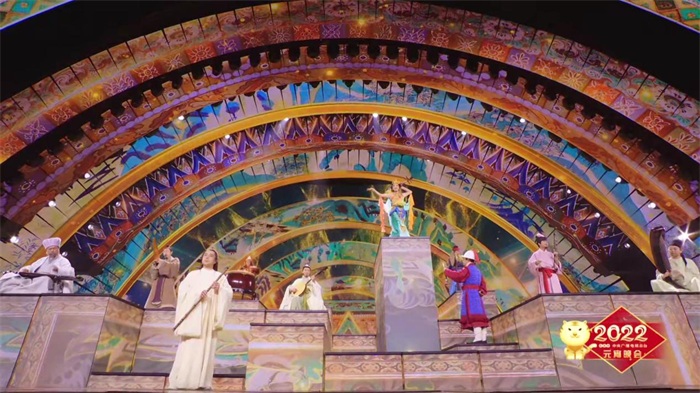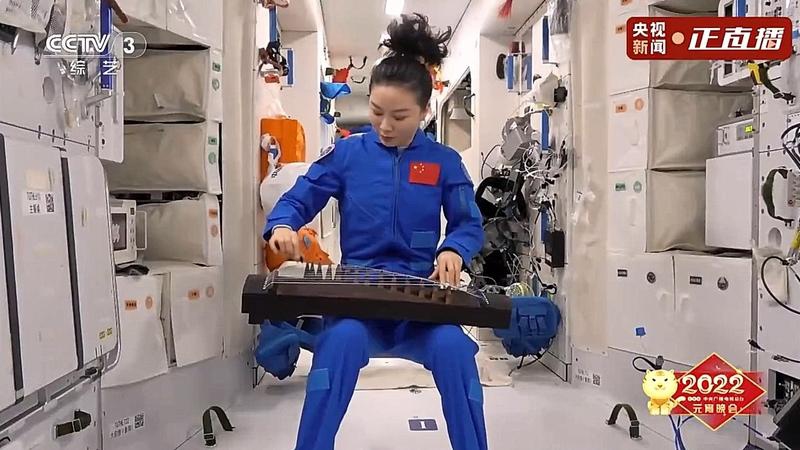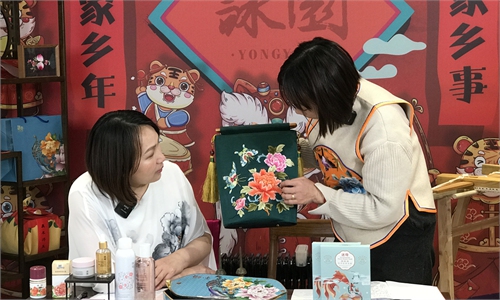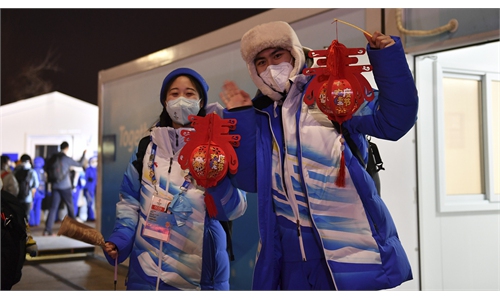ARTS / MUSIC
Lantern Festival concert joins Buddhist flying goddess with Chinese taikonaut

Qitianle concert, meaning music in heaven,was shown on Tuesday in Beijing and aired on China Central Television to celebrate the traditional Lantern Festival in China.
After rooting around in Chinese historical literature, a design team created a stage image related to Jiletian, the flying goddess in Chinese Buddhism, and connected it in a musical performance with Wang Yaping, the first Chinese woman to walk in space.
Tuesday marked the traditional Lantern Festival in China. A short music program named Qitianle, meaning music in heaven, was shown in Beijing and aired on China Central Television.
At the beginning of the show, Chinese taikonaut Wang Yaping played one of the most classic music pieces, Mo Li Hua (Jasmine Flower) at China's Tiangong Space Station, and sent blessings to people on Earth.

Taikonaut Wang Yaping guzheng onboard China's space station core module to celebrate the Lantern Festival.
"The program is a history of the development of Chinese folk music, from ignorance to understanding, and then to fusion, and finally to the current blooming situation of Chinese folk music," said Bi Bo, director of the program.
Flying goddess Jiletian was at the heart of the performance, as a symbol of both music and heaven. She is known to Chinese for her classical image in which she is playing the pipa, a traditional string instrument.
Images of Jiletian can be found in many Buddhist locations in China, such as grottos and caves like the Longmen Caves in Central China's Henan Province and Mogao Grottoes in Dunhuang, Northwest China's Gansu Province.
"In the early stage, we spent two months searching for literature to study the fabric of the costumes for the actors. We eventually designed 30 sets of costumes for this performance," said Zhang Ting, chief designer of the costume team.
"We even wrote a 40,000-word paper for it," she said, adding that every character in the performance was wearing "textbook" traditional Chinese costumes.


